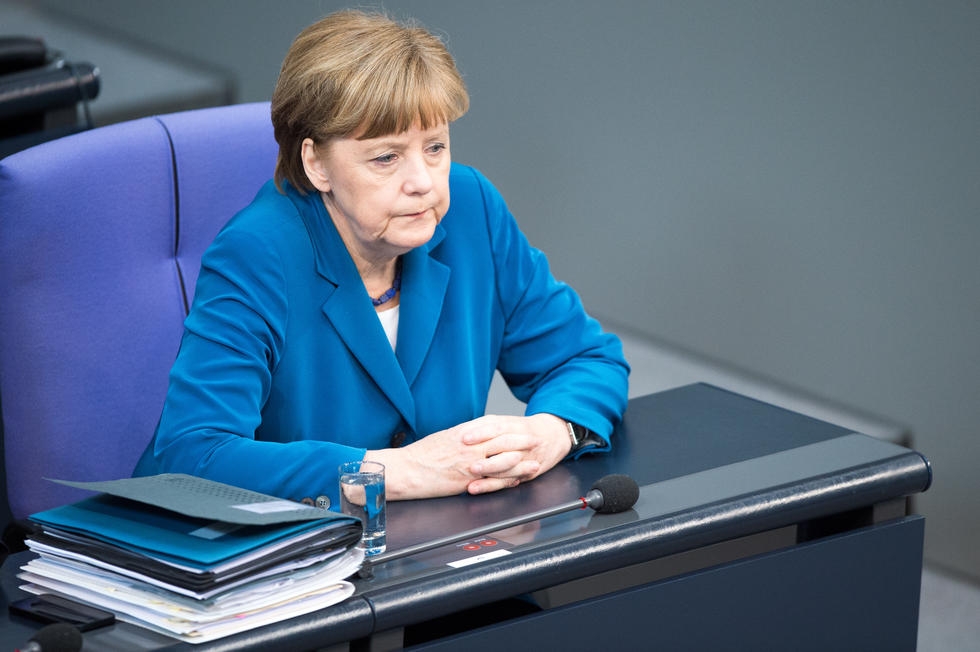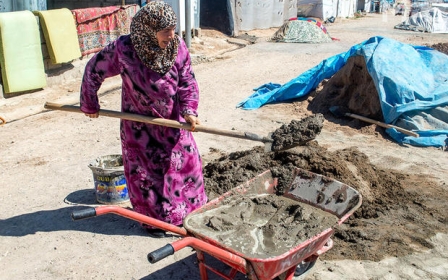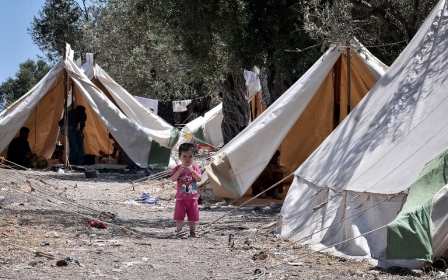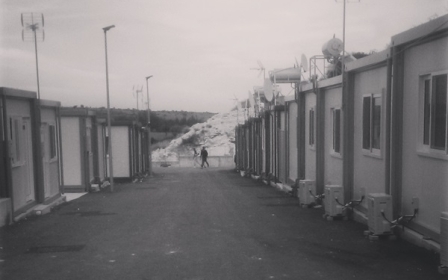Chancellor Merkel and the Palestinian refugee girl: Everyone missed the point

On Tuesday, 14 July, German Chancellor Angela Merkel appeared on a television programme called Good Life in Germany in which she spoke to local teenagers. Among the audience was 13-year old Reem, a Palestinian refugee who fled the camp in Lebanon four years ago.
In a shaky voice of fluent German, young Reem said, "I have goals like everyone else … I want to go to university." But, she explained, she and her family are facing deportation. “It’s very unpleasant to see how others can enjoy life, and I can’t myself,” she said, “I want to study like them.”
Chancellor Merkel responded with the standard western fear of immigrants. She said if Germany allows her to stay, there would be thousands of Palestinian refugees, then thousands from “Africa” (that singular large country) who will flood into Germany. “We can’t cope with that,” she said. Young Reem crumbled into sobs and the footage of her interaction with Chancellor Merkel went viral.
Headlines and political analyses across Europe and the US spoke of Merkel’s dry response to a brave young girl, desperate for an education, for a stable life, for something other than lingering fear and uncertainty to frame her life. I read at least 15 opinion pieces on the subject and most of them couched this incident in the much-discussed “immigration crisis” across Western Europe.
Leftist pundits decried the chancellor as heartless, insisting on Europe’s humanitarian responsibility toward the wretched of the earth. Right-leaning pundits reflected Merkel’s sentiments that Europe has enough to worry about and should not be expected to shoulder the world’s problems. Others were simply pragmatic, echoing the words of Eva Lohse, president of the German Association of Cities, who cautioned, “We’re reaching the limits of our capacity.”
All these analyses missed the most important point.
Not one of them touched on the fact that Reem is a refugee directly and indirectly because of German actions. Reem, and “thousands upon thousands of Palestinian refugees,” as Merkel put it, are stateless precisely because Germany, along with other Western nations, continue to support Zionist colonialism that expelled, and continues to expel, native Palestinians from their ancestral homeland.
Reem would not need German “charity” were Germany to insist that the massive military and financial aid it gives to Israel were contingent upon Israel’s adherence to basic tenets of morality and international law that explicitly provide for Reem’s right to live in her native homeland.
Reem might not be lost in the world were Germany to make the many lucrative European economic and trade incentives with Israel subject to the dismantling of Zionist apartheid that deems Reem a lesser human, unworthy of her own heritage, home and history.
More than the enormous material support is the favour that Germany provides for Israel to continue its entrenchment of the structural and institutional racism that offers state privilege and entitlement to citizens in accordance with their religion. It because of the political cover that Germany offers Israel to destroy Palestinian life, society and culture with impunity that Reem remains a refugee.
Last summer, for example, after Israel slaughtered Palestinians in Gaza from land, air and sea, the UN Human Rights Council urged the UN to “urgently dispatch an independent, international commission of inquiry to investigate all violations [of international law] in the Occupied Palestinian Territory, including East Jerusalem, particularly in the occupied Gaza Strip, in the context of the military operations conducted since 13 June 2014.” Despite the horrors that Palestinians endured in the course of 51 days, Germany could not muster the most minimal affirmation of Palestinian humanity to vote in favour of such an inquiry.
Watching the footage, those of us with a sense of history seethe at such a spectacle of Western paternalism. Merkel’s response to Reem was a perfect display of the breathtaking wilful denial of Western governments, which are, indeed, creators of refugees.
The truth is that our part of the world lay in ruin, fear, and devastation largely because of imperialist Western “operations” in pursuit of a hegemony that holds our lives in contempt, utter disregard and disrespect. From Iraq to Palestine to Libya, Germany has played a terrible and pivotal role in the evisceration of us.
Together with her Western allies, they have made beggars of our mothers, doctors and teachers, and produced generations of traumatised illiterates in what were once high-functioning populations. They destroyed our societies down to their foundations, vanquishing the social mechanisms that marginalise extreme elements, such that into the chaos and gaping misery of our lives now runs amuck a powerful organisation of ghoulish fanatics.
So, to the leftist, the right-wing and the pragmatic pundits, I say spare us, please, the self-serving blather about whether you should or should not “help” others. It would be enough to cease the harm caused and perpetuated by the West. At a minimum, try to inject a kernel of honest self-reproach into your discourse on immigration. Examine your role in creating the crises around the world that bring desperate human beings to your shores. Ask why Reem is a refugee, perhaps third- or fourth-generation, and what Germany’s role is in the boundless tragedy that continues to befall Palestine.
This article first appeared on Counterpunch
Susan Abulhawa is a bestselling novelist and essayist. Her new novel, THE BLUE BETWEEN SKY AND WATER, was released this year and simultaneously published in multiple languages, including German.
Image: German Chancellor Angela Merkel attends a debate on the refugee disaster in the Mediterranean sea in the Bundestag, the German lower house of parliament, in Berlin on April 22, 2015. 800 migrants feared to have died when a boat packed with migrants capsized near Libya. (AFP)
Middle East Eye propose une couverture et une analyse indépendantes et incomparables du Moyen-Orient, de l’Afrique du Nord et d’autres régions du monde. Pour en savoir plus sur la reprise de ce contenu et les frais qui s’appliquent, veuillez remplir ce formulaire [en anglais]. Pour en savoir plus sur MEE, cliquez ici [en anglais].





